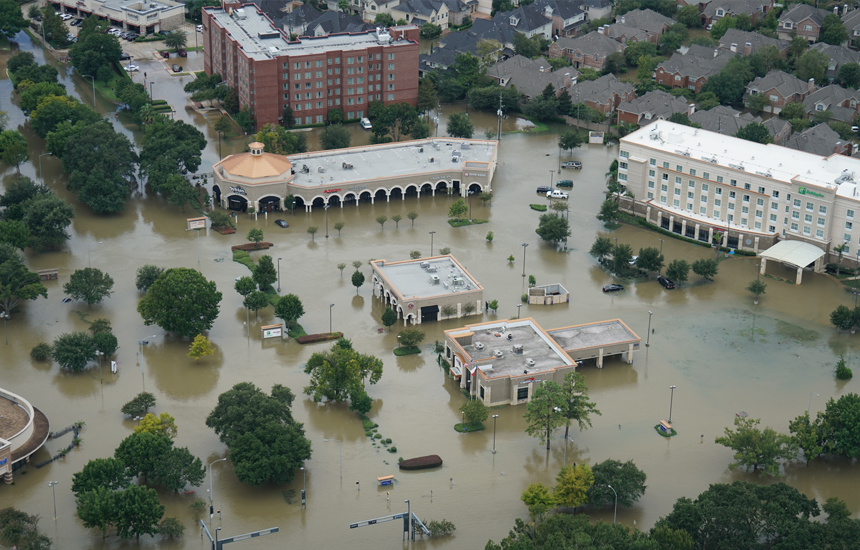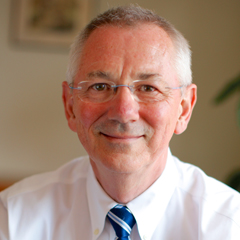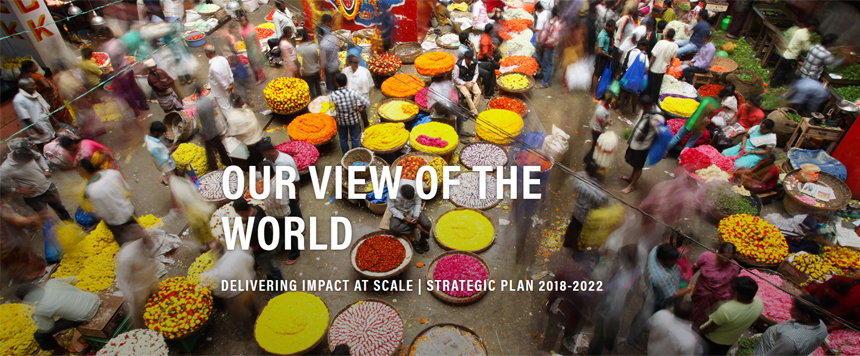When the World Resources Institute (WRI) was founded in 1982, it was in response to a gap in the market. Gus Speth, our founder and first President, recognized that the world needed an environment and development organization that would take a global perspective with a rigorous, evidence-based approach. Our mission statement called for WRI to “move society to provide for the needs and aspirations of current and future generations.” This goal remains unchanged.
Thankfully, we weren’t alone. MacArthur gave us our first major grant, $15 million, to enable WRI to focus on international environmental issues.
Throughout our history, climate change has been a central focus. As documented recently in The New York Times Magazine, WRI was a driving force behind some of the earliest U.S. congressional hearings on this urgent topic in the mid-1980s. This helped lay the groundwork for the UN-sponsored Intergovernmental Panel on Climate Change. In the late 1980s, WRI began exploring connections among air pollution, energy security, and climate change and in 1989 implemented the first carbon offset project with USAID and private sector company AES Corporation. The Institute’s 1997 analysis of costs and benefits of reducing greenhouse gas emissions was widely cited by U.S. policymakers in negotiations that led to the Kyoto Protocol on Climate Change.

© Getty Images
In advance of the 2015 Paris climate negotiations, WRI brought together a broad range of stakeholders to develop proposals for mitigation, resilience, finance, transparency, accountability, and a mechanism to increase climate action ambition over time, many of which informed the final text of the Paris Agreement. WRI’s online tools–including the Climate Watch, Global Forest Watch, and the Greenhouse Gas Protocol–provide essential guidance to policymakers, businesses, and civil society groups.
While our mission has remained constant, WRI’s way of operating has evolved. Over the past decade, we have put a much greater emphasis on global action. We now have offices in more than 10 countries, with projects and partnerships in dozens more. WRI goes beyond research, and most of our experts are working with front-line decision makers in many of the world’s rapidly developing countries.
As we look forward, we see new challenges. Our new five-year strategy tackles the key conundrum of our age: while humanity has never been so successful in terms of material wealth and comfort, never has this success been so threatened by our own actions. As Wanjira Mathai, Chair of the Green Belt Movement in Kenya and a member of WRI’s board, noted: “We know there is a path to prosperity for all and a healthy environment–but we’re not on it.”
Forging the right path requires our focusing on fewer, bigger things. We are helping to catalyze new platforms that build on our rigorous research and will create sustained political and corporate engagement. The WRI Ross Center for Sustainable Cities, New Climate Economy, and Aqueduct are well-established initiatives of this type. We have newer projects that carry similar potential: Building Efficiency Accelerator, Renewable Energy Buyers Alliance, NDC Partnership, Better Buying Lab, Champions 12.3, and P4G (Partnering for Green Growth and the Global Goals 2030).
Now more than ever, fostering sustainable growth by working with business, government, and civil society groups is more than a good investment: it is an essential investment.
MacArthur helped establish the Word Resources Institute with a $15 million grant and has provided a total of 34 grants totaling more than $52 million since then.





